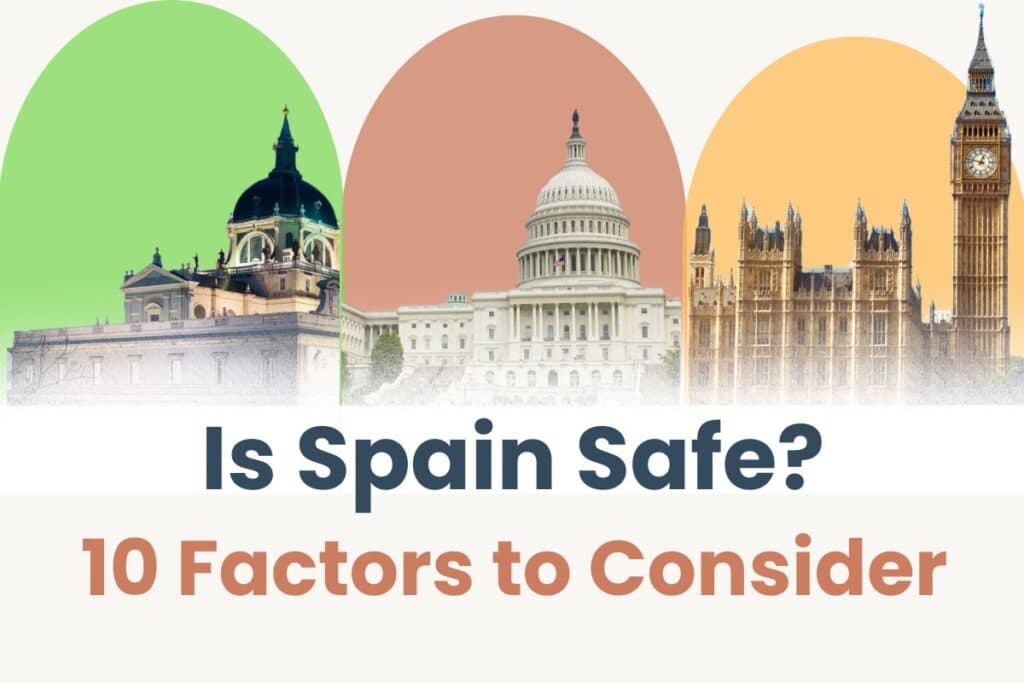The Beckham Law in Spain is an excellent opportunity if you are moving to Spain to work. You can use this special Spanish tax regime to pay less personal income tax. Named after David Beckham, who moved to play football for Real Madrid, it is an option for many Expats moving to Spain. We’ll cover who qualifies, how much tax you could save, and how to apply.
Important: The Spanish government made major changes to the Beckham Law in 2023 – ensure you use up-to-date & verified information.
How Does Spain’s Beckham Law Work?
The law is a special dispensation for displaced workers (Régimen Especial para Trabajadores Desplazados). It is sometimes referred to as the Special Expats’ Tax Regime (SETR). Effectively, the law is for people who move to Spain for professional reasons. The main requirements of the Beckham law are that you are moving to Spain to work.
With the new Startup Law passed in 2023, the scope to qualify is wider.
If you qualify, you are taxed at the more favorable non-resident tax rates for up to six years. And you’ll only pay Spain’s Wealth Tax and Capital Gain Tax on Spanish assets.
The Spanish government created the regime primarily for professional athletes; however, this has shifted. The rule now excludes professional athletes; it targets skilled workers, entrepreneurs, and professionals.
Important: The Spanish tax authority does not apply this automatically; you must actively apply to take advantage.
Who Can Benefit From The Beckham Law In Spain?
The first part is that you have moved to Spain to work. So, you’ll need to meet one of five requirements to benefit from the lower rates.
You have moved to Spain for work:
- With a job offer or employment contract from a Spanish company or
- Because your foreign company has transferred you to Spain or
- You were appointed as a director of a Spanish company (that you own less than 25% of shares.) or
- You are a Spain-based remote worker for a non-Spanish company or
- As an entrepreneur or new business owner in Spain.
Nature of the work
- At least 85% of your tasks and responsibilities should be carried out in Spain.
- Your Spanish employer pays you.
Or
- You are a Spain-based remote worker employed by a non-Spanish company.
Or
- You are the owner of a qualifying Spanish company or business.
Six-month application window
You have six months from the start of your employment to submit your application under the Beckham law in Spain. After this time, you cannot qualify.
Excluded groups
Four groups cannot use this tax status.
- Professional athletes (ironic, given the name of the law).
- Freelancers and the self-employed.
- Directors of companies with more than 25% shareholding in the employing company (if it is a patrimonial company, such as a property investment company.)
- Anyone who has been resident in Spain in the last five years (reduced in 2023 from ten). The Beckham Law is only available to first-time residents in Spain.
Note: If you have Spanish citizenship, you cannot use this status either.
Lower Income Earners
In most cases, you’ll need to earn more than €50,000 or €60,000 to benefit from this law. The lower progressive rates mean this is the threshold to consider the Beckham law in Spain. So, if your income is under the threshold, you’ll be better off paying tax-resident personal income tax rates.
The €50,000 – €60,000 range is because of variations in regional tax rates and available deductions.
Need Tax Advice?
Need clarity on your tax obligations and a solid financial strategy ? Schedule a consultation with our recommended tax advisor, Louis, to gain complete clarity and peace of mind.
Which Income Is Covered?
The regime generally covers any income generated in Spain that would count towards your personal income tax liability. This will include the following:
- Any income paid to you by a Spanish company or client in Spain.
- Spanish income from savings, interest, dividends, etc.
Remember, worldwide income earned outside Spain is not taxed in Spain. You’ll pay tax on this income where you are a tax resident at local rates. This can mean submitting tax returns in multiple countries.
Note: If you move to Spain and claim this dispensation, your tax year may be split with some tax paid in your original tax-resident country.
How Much Tax Can You Save With The Beckham Law In Spain?
Under the Beckham law in Spain, there are three significant tax opportunities. All are because you are seen as a non-resident for these taxes. You keep your non-resident tax status even if you live in Spain for more than 183 days a year.
1) You’ll pay non-resident income tax rates (IRNR).
Your tax rate will be a flat 24% to €600,000 annual income. Income above €600,000 is taxed at 47%.
This is a massive saving on resident tax rates, which climb to 45% at just €60,000 annual income.
You are liable for non-resident income tax (NRIT) or Impuesto sobre la Renta de No Residentes (IRNR).
Important: You are only liable for Spanish Income tax on income earned in Spain. So if you earn income outside Spain from other sources, you’ll pay taxes outside Spain on worldwide income.
See our Spain Tax Guide for income tax rate information.
2) Wealth Tax only on Spanish Assets
Many Expats tax residents in Spain are liable for wealth tax on all global assets. If you qualify for the Beckham law, you’ll only pay tax on your Spanish Territory assets over the threshold. You don’t need to submit an annual Modelo 720 global asset declaration.
See our Spanish Wealth Tax article for more details.
3) Spanish Capital Gains Tax
Again, you’ll only be liable for capital gains that you made in Spain. Your Spanish capital gains are taxed between 19-28% under the special regime. Any foreign capital gains taxes will be payable where you incurred those gains.
Note: Even if you qualify for the Special Expats’ Tax Regime (SETR), you’ll still pay some local taxes like property tax.
The Drawback?
As you are a non-resident for tax purposes, you won’t be able to use some double taxation treaties (DTT). You should speak to a Spanish Tax expert with Expat experience to understand the impact,
How To Apply
Getting help from a Spanish tax lawyer with Expat experience will ensure you get the benefits on offer.
The first step is to register with the Spanish tax authorities. Once you have a Spanish tax number (NIE), you can proceed with the next step.
You used Modelo (form) 149 to tell the Spanish tax authorities you are choosing SETR. You’ll need your Spanish tax number (NIE), social security number, passport, and employment contract for the application.
You’ll use Modelo (form) 151 to submit your tax return.
How Long Can You Use The Beckham Law?
You can use the special regime for the rest of the year when you start your employment and for five additional years. This gives you a maximum of six years in total. After this time, you’ll move to the standard resident tax regime and pay according to the progressive income tax rates.
New Opportunity For Remote Workers And Digital Nomads
Spain’s new visa offers similar tax benefits to the Beckham Law. Many Remote Workers, Freelancers, and Digital Nomads can use this immigration and tax status to pay less tax. Check out our guide to the new Spain Digital Nomad Visa here.
The Spanish government passed the Start-Up Law to encourage new businesses, remote workers, and digital nomads. The simple immigration process and low tax rates are proving popular.
These laws add to Spain’s growing reputation as one of the best places in Europe to be an international remote worker.
Next Steps To Save Tax
Obtaining this special tax status means you’ll pay less in Spain. If you are moving to Spain for work, you’ll want to get your paperwork started as soon as possible. Use our expert Beckham Law in Spain specialist tax lawyer to make the process as easy as possible.
What is the new Beckham law in Spain?
The Beckham law allows Expats moving to Spain to work to pay lower tax rates. The law covers employees of Spanish companies, international companies, freelancers, digital nomads, and self-employed.
How do I apply for Beckham law in Spain?
You’ll submit a form to the Spanish tax authorities opting in to qualify for the special tax rates. You’ll need to submit Modelo (form) 149 within 12 months of moving to Spain.








